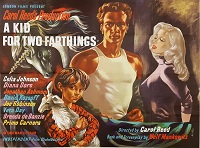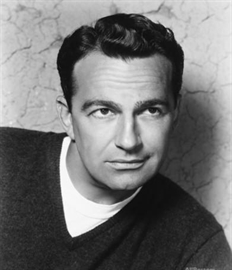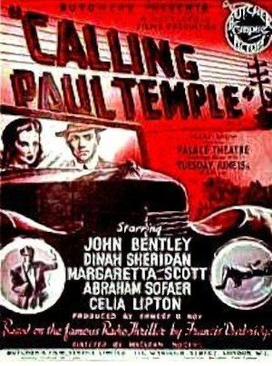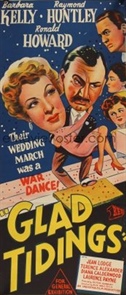
Alastair George Bell Sim, CBE was a Scottish character actor who began his theatrical career at the age of thirty and quickly became established as a popular West End performer, remaining so until his death in 1976. Starting in 1935, he also appeared in more than fifty British films, including an iconic adaptation of Charles Dickens’ novella A Christmas Carol, released in 1951 as Scrooge in Great Britain and as A Christmas Carol in the United States. Though an accomplished dramatic actor, he is often remembered for his comically sinister performances.

A Kid For Two Farthings is a 1955 British comedy-drama film directed by Carol Reed. The screenplay was adapted by Wolf Mankowitz from his 1953 novel of the same name. The title is a reference to the traditional Passover song, "Chad Gadya", which begins "One little goat which my father bought for two zuzim". At the end of the film, Mr. Kandinsky softly sings fragments of an English translation of the song.
Walton Studios, previously named Hepworth Studios and Nettlefold Studios, was a film production studio in Walton-on-Thames in Surrey, England. Hepworth was a pioneering studio in the early 20th century and released the first film adaptation of Alice's Adventures in Wonderland.

John Bentley was a British film actor. He had a successful career as a leading man from the 1940s to the late 50s and was a popular heart-throb who appeared in many British b-movies during that time. Later in his career, in the 1970s he appeared as Hugh Mortimer, Meg Richardson's ill-fated third husband in the famous English soap opera Crossroads. He also starred in the jungle adventure series African Patrol (1957) as Chief Inspector Paul Derek and made various other guest appearances in many popular TV series from the late 50s onwards.

The Pickwick Papers is a 1952 British historical comedy drama film written and directed by Noel Langley and starring James Hayter, James Donald, Nigel Patrick and Joyce Grenfell. It is based on the Charles Dickens’s 1837 novel of the same name. It was made by Renown Pictures who had successfully released another Dickens adaptation Scrooge the previous year.

Blind Spot is a 1958 British drama film directed by Peter Maxwell and starring Robert MacKenzie, Delphi Lawrence, Gordon Jackson, John Le Mesurier, and Michael Caine.

Scarlet Thread is a 1951 British crime drama film directed by Lewis Gilbert and produced by Ernest G. Roy.

Two on the Tiles is a 1951 British comedy film directed by John Guillermin and starring Herbert Lom, Hugh McDermott and Brenda Bruce. It was made at the Walton Studios by the independent Vandyke Productions for release as a second feature. It was one of three back-to-back productions Guillermin directed for the company at Walton Studios, along with Smart Alec and Four Days,. It was released in the U.S. as School for Brides.

Don't Bother to Knock is a 1961 British comedy film directed by Cyril Frankel from a screenplay by Denis Cannan and Frederic Gotfurt, based on the 1959 novel of the same name by Clifford Hanley. It stars Richard Todd, Nicole Maurey, Elke Sommer, June Thorburn, Rik Battaglia and Judith Anderson.

Three on a Spree is a 1961 British comedy film directed by Sidney J. Furie and starring Jack Watling, Carole Lesley and John Slater. It is based on the 1902 novel Brewster's Millions by George Barr McCutcheon, which became the hit 1906 play written by Winchell Smith and Byron Ongley. It had been previously filmed by Edward Small in 1945.

This Man in Paris is a 1939 British comedy mystery film directed by David MacDonald and starring Barry K. Barnes, Valerie Hobson and Alastair Sim.

A Touch of the Sun is a 1956 British comedy film directed by Gordon Parry and starring Frankie Howerd, Ruby Murray and Dennis Price.

Calling Paul Temple is a 1948 British crime film directed by Maclean Rogers and starring John Bentley, Dinah Sheridan and Margaretta Scott. It was the second in a series of four Paul Temple films distributed by Butcher's Film Service. The first was Send for Paul Temple (1946), with Anthony Hulme as Paul Temple. John Bentley then took over the role in Calling Paul Temple, continuing for two further films: Paul Temple's Triumph (1950) and Paul Temple Returns (1952). It was produced by Ernest G. Roy at the Nettlefold Film Studios in Walton On Thames.

Impulse is a 1954 British second feature film noir directed by Cy Endfield and starring Arthur Kennedy, Constance Smith and Joy Shelton.
I'm an Explosive is a 1933 British comedy film directed by Adrian Brunel and starring William Hartnell, Gladys Jennings and Eliot Makeham. In the film, the son of an inventor is believed to have accidentally drunk an explosive liquid.

Glad Tidings is a 1953 British comedy film directed by Wolf Rilla and starring Barbara Kelly, Raymond Huntley and Ronald Howard. It was based on the play of the same title by R. F. Delderfield and made at the Nettlefold Studios in Walton-on-Thames. The film's art direction was by John Stoll. The backers Eros Films were pleased enough with the film's success to adapt another Delderfield play as Where There's a Will in 1955.

The Story of Shirley Yorke is a 1948 British drama film directed by Maclean Rogers and starring Derek Farr, Dinah Sheridan and Margaretta Scott. The film was based on the play The Case of Lady Camber by Horace Annesley Vachell. It was made at the Nettlefold Studios in Walton-on-Thames. Art direction was by Charles Gilbert.
Ernest G. Roy (1892–1977) was a British film producer who was managing director of Kay Laboratories, Kay Carlton Hill Studios Ltd and Nettlefold Studios.
Self Made Lady is a 1932 British drama film directed by George King and starring Heather Angel, Henry Wilcoxon and Amy Veness. It marked the screen debut of Louis Hayward who later became a star in Hollywood. The film was made at the Nettlefold Studios in Walton-on-Thames. Cut down from its original running time of 77 minutes, it was distributed as a second feature by United Artists to allow the company to fulfill its quota requirement.

Escapade is a 1952 play by the British writer Roger MacDougall.
















